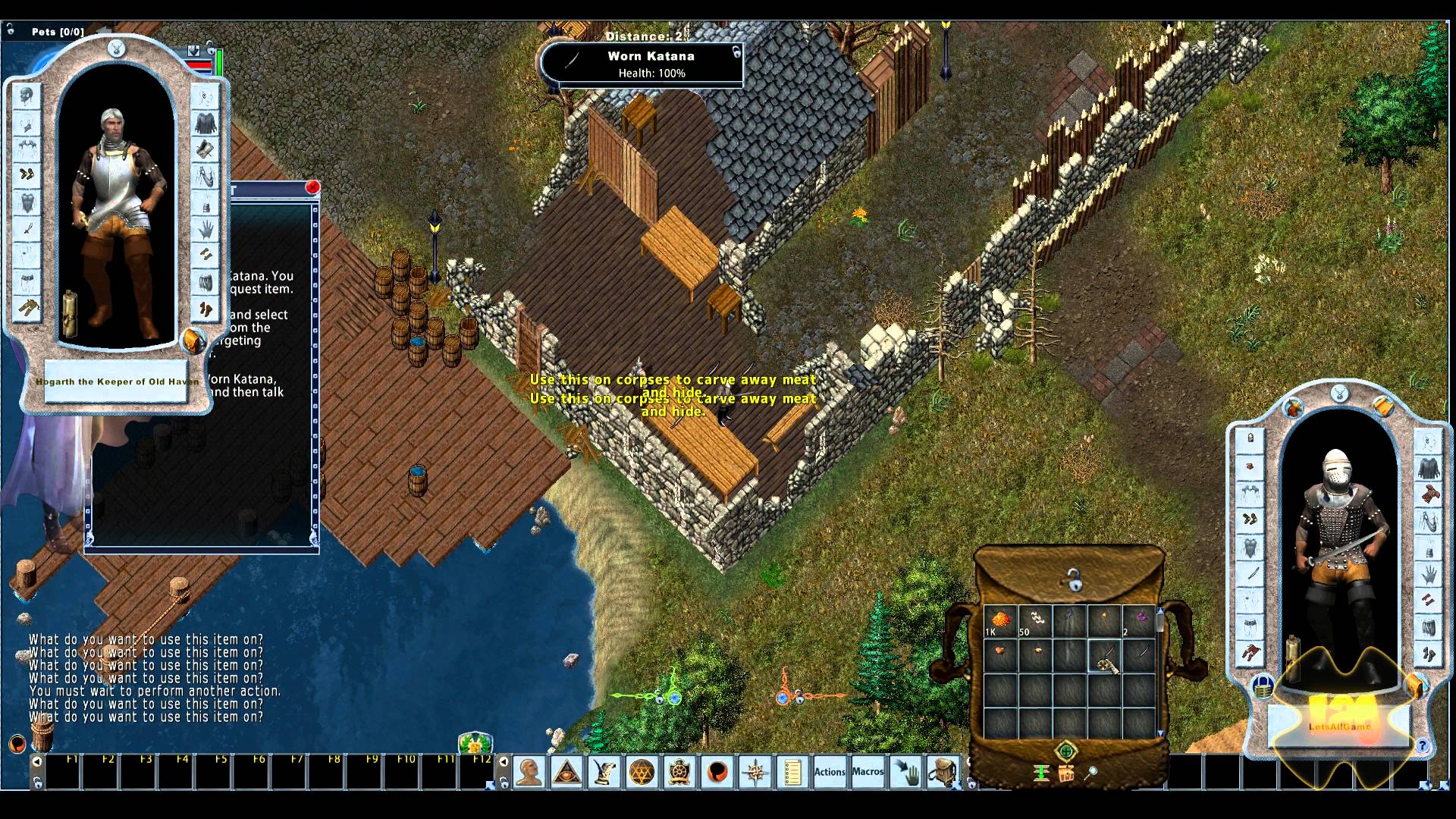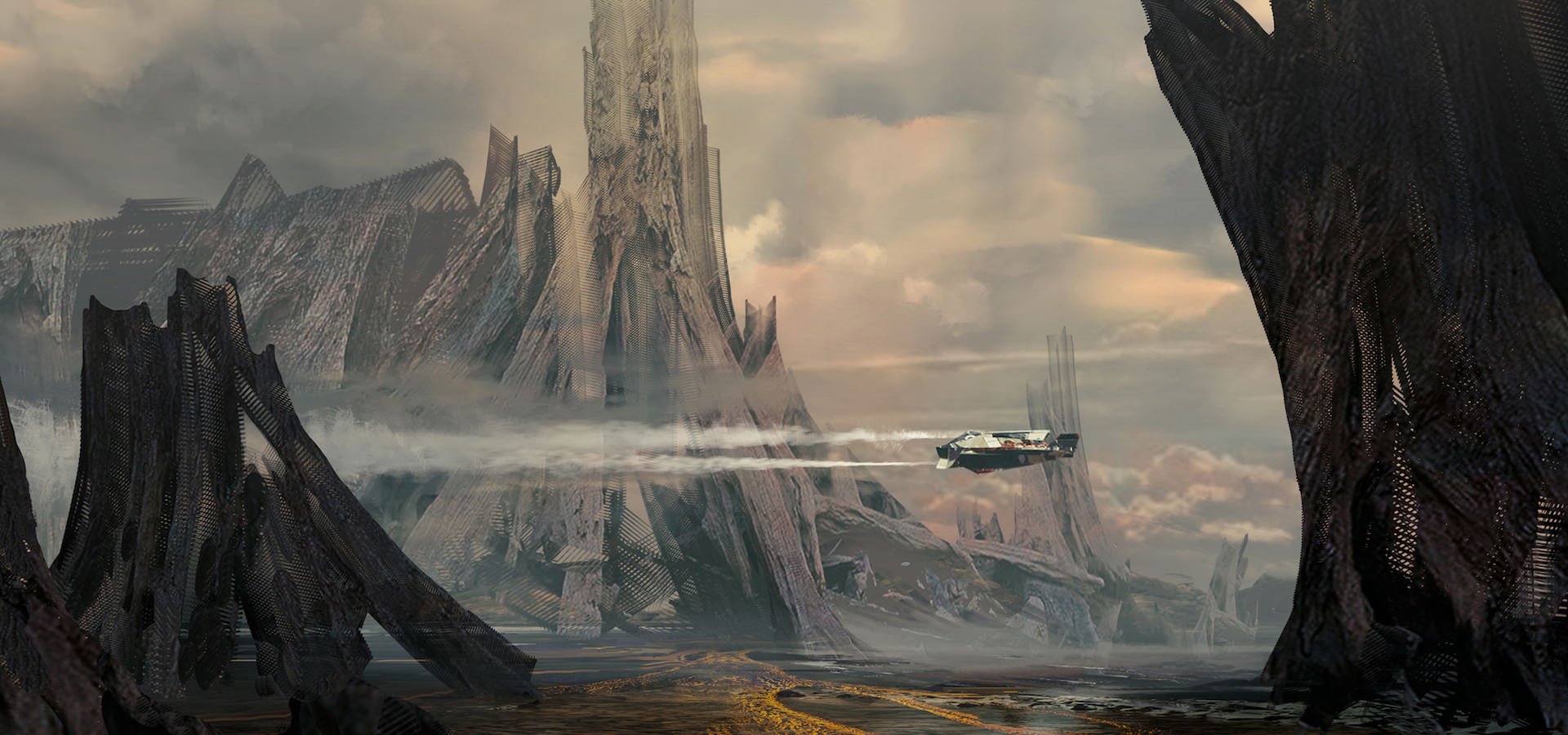
“Don’t feed the trolls” is a common refrain in online spaces, meant to extol the virtue of turning the other cheek when you’re being insulted or dragged… or even doxxed. Rich Vogel, VP of Technology and Online Services at Certain Affinity in Austin, TX, doesn’t believe that ignoring toxicity in communities is a virtue. Instead, Vogel decries publishers, developers, and platform holders that let problematic behavior run wild, instead of standing alongside community managers and curbing the problems before they really spin up.
GameDaily caught up with Vogel at the IGDA Leadership Summit in Austin. We talked about the origin of the community manager role, his long work with live services, and the magic at Certain Affinity.
Vogel’s pedigree is unassailable — 3DO (Meridian 59), EA (Ultima Online), Sony Online Entertainment (specifically, Stars Wars Galaxies), BioWare Austin (Star Wars: The Old Republic), and BattleCry Studios (now Bethesda Games Studios Austin). He’s been working in the industry for almost thirty years, after all.
But before we had official community managers, there was a big hole in the way that the industry approached players, the forums, and the fansites that grew up around particular games. And while Vogel was working on Meridian 59 at 3DO, he and his team also had to consider what a live service is.
“We had to come up with a way of connecting on the internet, anywhere you live in the United States, to a game,” Vogel said, talking with me over coffee. “It’s a game service. [There were a] lot of things we had to learn about: community management; we had to learn about events, because we had events in the game that we actually ran, and how to do that.
“So a lot of [these] things [came from], in my opinion, where I got my foundation from: Meridian 59. Again, that company was more of a product, not a live service company. So we had to learn all about what that means.”
And with live services come the communities. They don’t govern themselves, of course, but in the mid-’90s when Vogel was working on Meridian 59, there was only one place that 3DO could turn to find the right people.

“[We] looked for people who [contributed to] forums at that time,” Vogel elaborated. “I looked at how they posted and how the communicated. [I] looked for people who were really good … or had really good posts on our forums, really articulate and well spoken, dealt with feedback from the community really well. I found a few people that we hired in that role. The first time, when it was Meridian 59, we actually coined the word, I think, ‘community manager’.”
But the real secret was in a very specific skill-set: theater. Vogel specifically looked for folks that had backgrounds in theater so that he could trust them to understand scripts, know how to interact with an audience, and improvise as needed. Back then, they didn’t have to contend with the pages and pages of community-oriented data that Twitter, Reddit, and Discord heap on. All they had to worry about were the forums and in-game chat.
Vogel may not be a proponent of the toxicity that recently introduced complexity has a tendency to create, but this richness in communication “does make community management more interesting.”
“What happened, I think, evolved because forums become PR, [which] becomes a company problem,” Vogel noted. “Companies didn’t know how to deal with connected communities. They really didn’t. And you can see all the blunders that companies make in the way [they] talk to [the community]. Some of the mistakes they [make are when they] say to them, ‘Oh, don’t. Don’t.’ I say [something], and watch when they say, ‘Oh, you didn’t just say that. You’re going to get ripped.’ Again, it’s how you talk to them. I don’t use a PR mouthpiece when I talk to the community.”
That tension between PR and their messaging versus what the community managers communicate has existed for as long as there has been that divide. PR toes the company line. The community managers work for, well, the community.
“A lot of us took that on ourselves with the community managers,” Vogel said simply. “We didn’t have them stand alone.”
Part of curbing some of the problems and miscommunications that crop up around chatting with a thriving community on a regular basis is in how you say the things that you say. It’s not enough to say that a patch is dropping in 2 days. The community is hungry for as much detail as they can wring out. What kind of patch is it? Why does it matter? What is the development team doing to address the problems that the community has identified?
“It is really critical that you very carefully word what you say,” he continued. “And word it in a way that it doesn’t sound like a PR press release. It’s learning how to talk to the player in a way that they can form a trust. Of course, anything that you do gets interpreted many different ways. So it becomes very volatile, if you’re not very careful, very, very fast. When you run games to the service, you have to have an escalation policy in place to understand how to move quickly because you can’t wait. That’s the big thing that publishers don’t get.
“Just make it very brief and succinct, and to the point. And also adopt people around you that will help you. There’s lots of community people that could be on your side. Adopt and use them as your tools, as your advocates. [Lean on them] to talk, communicate, facilitate, get information about issues they are having, figure out how to get resolution of issues. Listen to your player base. Never talk about something that isn’t real. I’ve learned never to promise and not deliver. And the community appreciates honest and direct feedback.”
During his work at EA, breathing new life into Ultima Online (UO), the community wasn’t the only piece that they had to worry about on a regular basis. Part of what he had to do was teach an old dog new tricks: there’s no “set it and forget it” in online gaming. It’s an “ecosystem,” as Vogel called it. It breathes. It’s always changing. So there’s always the need for a developer (or a team of them) to be on call.

“When UO launched, they called it ‘maintenance’ and I hated that word,” Vogel laughed. “I came up with the word ‘live’. Live development came out of us. Teaching publishers how to deal with something that they just push out on the shelf–they launch and they forget afterwards–to something you can maintain and grow, and it’s a living, breathing world.
“So that really took a lot of time, even at EA. Everywhere I’ve been, when there was a publisher that doesn’t do online, it’s been a huge educational experience. When you’re online 24/7, you have to have a team working 24/7. That was a big deal, because we had pagers, we were on call all the time. If the service went down, we had to get up, no matter what time of night it was. And there were many times on UO that I got paged at two, three, four in the morning. I had to stay there all night until it’s fixed.”
This is the live service flavor of crunch that keeps IT and developers exhausted for months on end. Vogel wasn’t interested in an extended stay in UO Crunchland, however.
“It was tough. It was tough on a lot of us because we told them, and said, ‘Look, we need to hire more people. We can’t do this ourselves,’” he said. “So, we had to train. We had to come up with a network operations center [and] train people to deal with just the common stuff. We had to develop tool sets for people to go [take care of] things if something happened where we wouldn’t be paged. All that’s a part of live development.”
Vogel’s work with games like UO and Star Wars: The Old Republic were good examples of what it meant to run these kinds of communities and live services at different points in a technological cycle. With SWTOR, there was more understanding and better resources than was possible for UO. But where Vogel and I agree is that the game-as-a-service lives or dies by its community. There’s no better proof of that than in the way Ubisoft has approached games like For Honor, Rainbow Six Siege, The Division, and Ghost Recon Wildlands.
“[Ubisoft is] probably one of the best companies out there right now for games-as-a-service,” Vogel affirmed. “I really don’t know many people out there that can equal them. It’s a shame, because EA had the lead, and still, it took them a long time, and they still don’t sometimes get what I mean by games-as-a-service.”
Publishers have to believe in the game that they’re investing in, and Ubisoft has a habit of not letting off the gas with its properties. They knew that Rainbow Six Siege could be something special if they could get it off the ground with influencers and get it into the hands of a community that was starting to crop up around it.
“You know it’s there, now work with a community to get it there,” Vogel reminded me. “That’s what running games-as-a-service is all about. You have your core group. Listen to them, pick the things you think–analytics and other things like that–drive you to [decisions], and then start building and publishing. That’s why they call it a heartbeat: [it’s] publishing at a consistent rate cool things in the game.”
Big publishers, those eight-hundred pound gorilla publishers who don’t have the ability to pivot quickly or take big risks (because investors and shareholders), say that they “like to do a lot of online games, but very rarely will they risk… an outside group. Very rarely.”
“I look at companies that don’t do a lot of that [and those are] the companies you want to work for,” Vogel commented. “There is nothing wrong with having a solid portfolio that helps stabilize everything, but you always have to take risks. I think that’s some of the downside of our industry a little bit, is companies (publishers) don’t take that risk a lot.”
Vogel joined Certain Affinity last September after spending five years building BattleCry Studios in Austin under the ZeniMax (Bethesda’s owner) label. Bethesda renamed it to Bethesda Game Studios Austin in March of this year. Certain Affinity carved out a tidy niche for itself doing co-development and work-for-hire projects. I’d heard rumor that Certain Affinity wasn’t just amazing at hitting deadlines (no slipped deadlines in over a decade), it didn’t suffer churn the way some game development shops can.

“We’re going to definitely keep that going,” Vogel confirmed. “We’ll have these two new things we’re working on that’ll be our own, working from A to Z, and that’s what I’ve been brought in to help them transition that. [We’ll] fill those gaps in from co-development to building something A to Z. That’s something I’ve been working on with them to do.”
While Vogel helps them transition to their newer, original projects with their own intellectual property, it doesn’t mean that CA is going all-in just yet. They haven’t had to lay anyone off in well over a decade, either. Why?
“We always have backups,” Vogel said. “We always are looking around for what’s next. [It’s] been a company goal: we don’t want to lay people off. We want to make sure that whatever we do, we’re always looking for the next thing, that we always have stuff coming in that are very cool. Even though we’re done this one IP and this one original, we’re going to still do co-dev to smooth the areas out.”
Part of that CA magic is the ability to retain senior talent, even when a project wraps. “We have a lot of people that have been there for a long time,” he noted. “A lot.”
“Community is everywhere,” Vogel reminded me, when I asked him about the cultural phenomenon that Fortnite had become. “They’ll go anywhere. Community is portable.”
We found ourselves talking about Fortnite’s moment to shine when PlayerUnknown’s Battlegrounds went dark for 36 hours. It allowed the burgeoning battle royale community to make a shift over to another service whose uptime availability was, well, not 36 hours dark at a time. Fortnite: Battle Royale was still relatively new, too. It had only been out for a few months at the time.
“They got their gap, their moment in time, because PUBG went down,” he continued. “That was the spike that gave them the lift that they needed, because they did battle royale at the right moment. And people went right over there from PUBG. A 36-hour period was just the right moment in time … and community support. But I always tell these people, first thing on my slide when I go tell my community managers, ‘Community is portable.’”
After years of helping companies–publishers and developers alike–try to corral their communities in meaningful, predictable ways, Vogel has come to the conclusion that “you can’t manage your community, you really can’t.”
Instead, “You can offer guideposts and make sure that what you’re talking about.” Vogel recommends that “you get an evangelist” (or ten) and while “you can get a good positive vibe out of your community, if you do something, or something happens, it can change in a heartbeat.”
 GameDaily.biz © 2026 | All Rights Reserved.
GameDaily.biz © 2026 | All Rights Reserved.